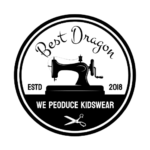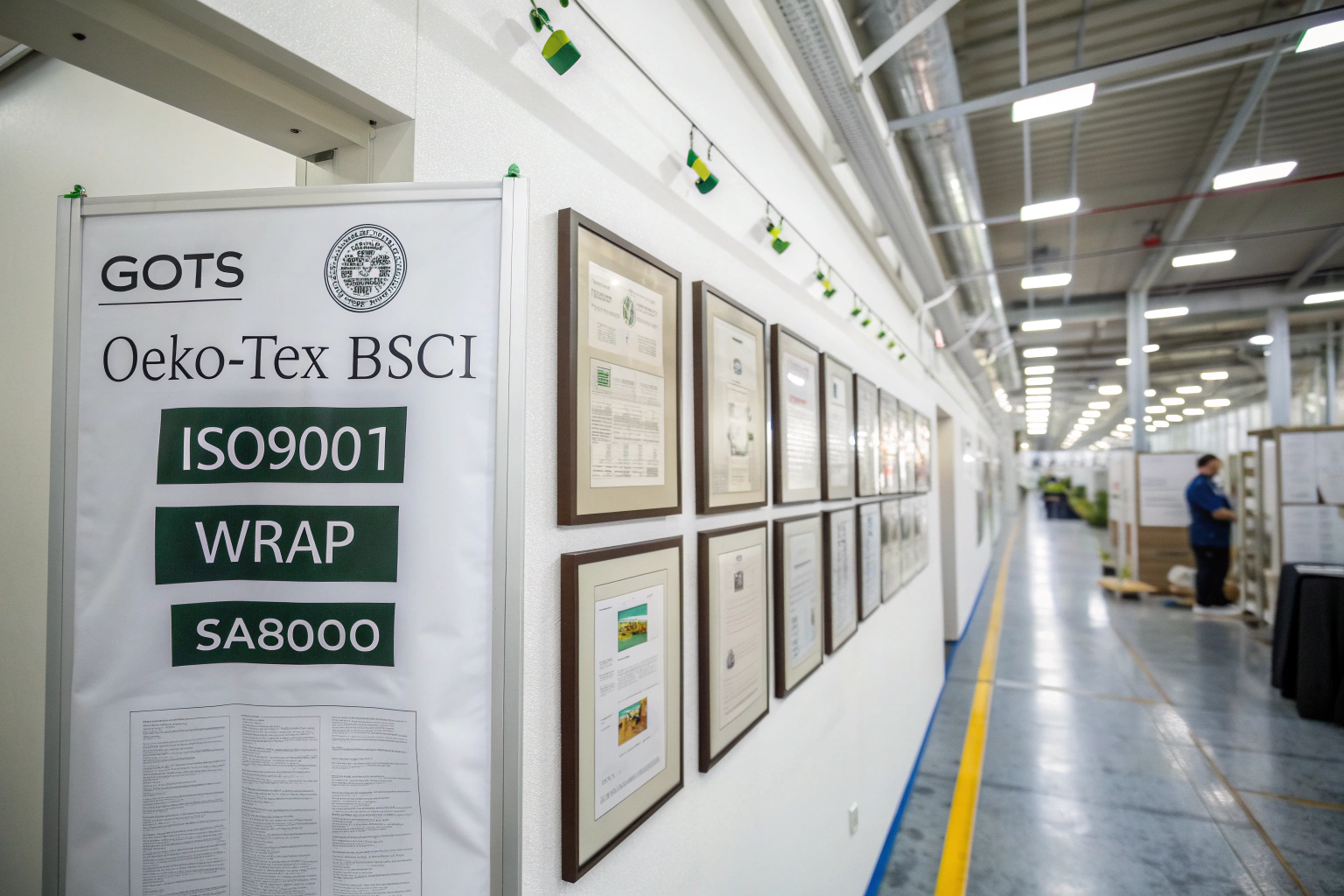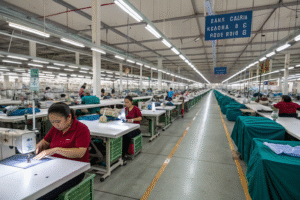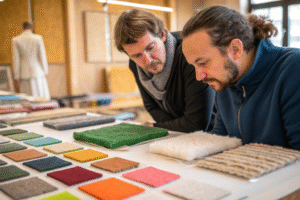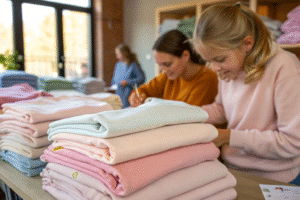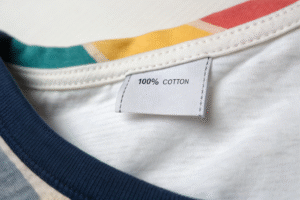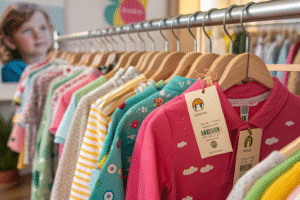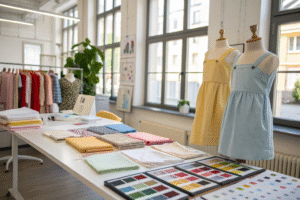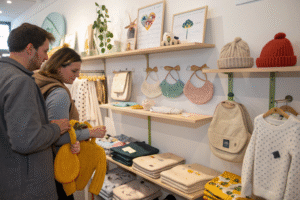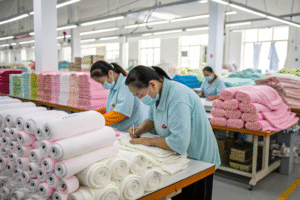In the apparel industry, especially in children’s clothing, certifications are not optional — they are essential. Whether you’re sourcing organic baby bodysuits, school uniforms, or performance outerwear, a factory’s certifications serve as proof of ethical practices, environmental standards, and product safety.
But here’s the reality: many factories display fake or expired certificates to win deals.
So how can you, as a responsible buyer or brand owner, verify if a factory’s certification is valid, current, and trustworthy? In this guide, I’ll walk you through practical steps to cross-check certifications, spot red flags, and ensure your supply chain is truly compliant.
What Are the Most Important Apparel Factory Certifications?
Depending on your market — U.S., Europe, or Australia — the certifications you should look for may vary. However, some globally recognized standards are relevant for all buyers of apparel, particularly in the kidswear and sustainable fashion sectors.
Knowing which certifications matter is the first step to verifying legitimacy.
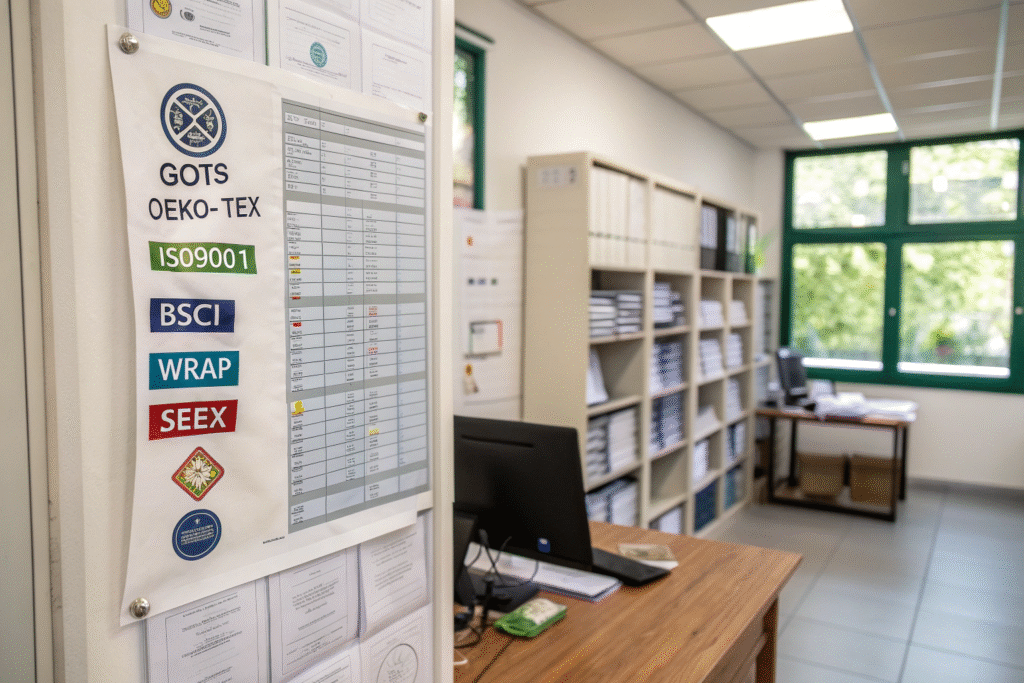
Why Are GOTS and OEKO-TEX So Widely Required?
GOTS (Global Organic Textile Standard) is the gold standard for organic textile production, covering both environmental impact and social responsibility. It ensures that a product is made with certified organic fibers and processed without toxic chemicals.
OEKO-TEX Standard 100 certifies that textiles are free from harmful substances — especially critical for baby and toddler wear. Retailers like H&M and Zara increasingly require one or both before accepting suppliers.
What About Social Compliance Certifications?
If you’re concerned about labor ethics, look for BSCI (Business Social Compliance Initiative), SA8000 (Social Accountability), WRAP, or SEDEX audit reports. These verify that factories follow responsible labor laws, provide safe working conditions, and avoid forced labor — all crucial if your brand sells in Western markets.
Many retailers now mandate at least one social compliance certificate before doing business, especially for private-label or branded children’s clothing.
How Can You Check If a Certificate Is Authentic?
Having a digital copy of a certificate isn’t enough. Anyone can Photoshop a seal. What matters is knowing how to confirm whether it’s real — and issued to the factory you’re working with.
Always verify certificates directly on the issuing organization’s website.
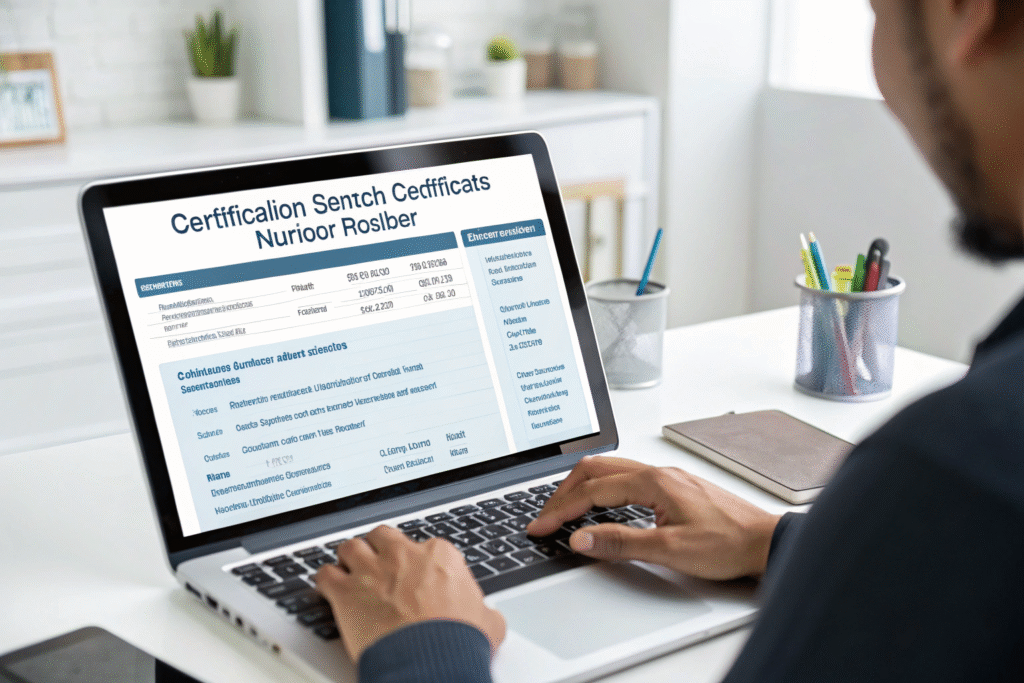
Where Can You Search for Validity of GOTS or OEKO-TEX?
GOTS has a searchable public database where you can enter the factory name or license number. It shows whether the factory is still certified, their scope, and expiration date.
Similarly, OEKO-TEX provides a label check tool where you can enter the test number or company name. If the factory isn’t listed — or the certificate has expired — it’s likely fraudulent.
You can also contact these organizations directly to confirm authenticity, especially for bulk orders.
What If a Factory Claims to Be “In Process”?
This is a common trick — factories claim they’re “waiting on renewal” or “under review.” In such cases, request a confirmation email from the certifying body or ask to see the application receipt. Reputable factories will share this openly. Also, look them up on China Checkup or ImportYeti to verify export history and client credibility.
What Red Flags Suggest a Certificate Is Fake or Expired?
It’s surprisingly easy to spot a fake certification — if you know what to look for. Some signs are visual; others come out during communication.
Buyers should always approach certifications with a healthy level of skepticism.
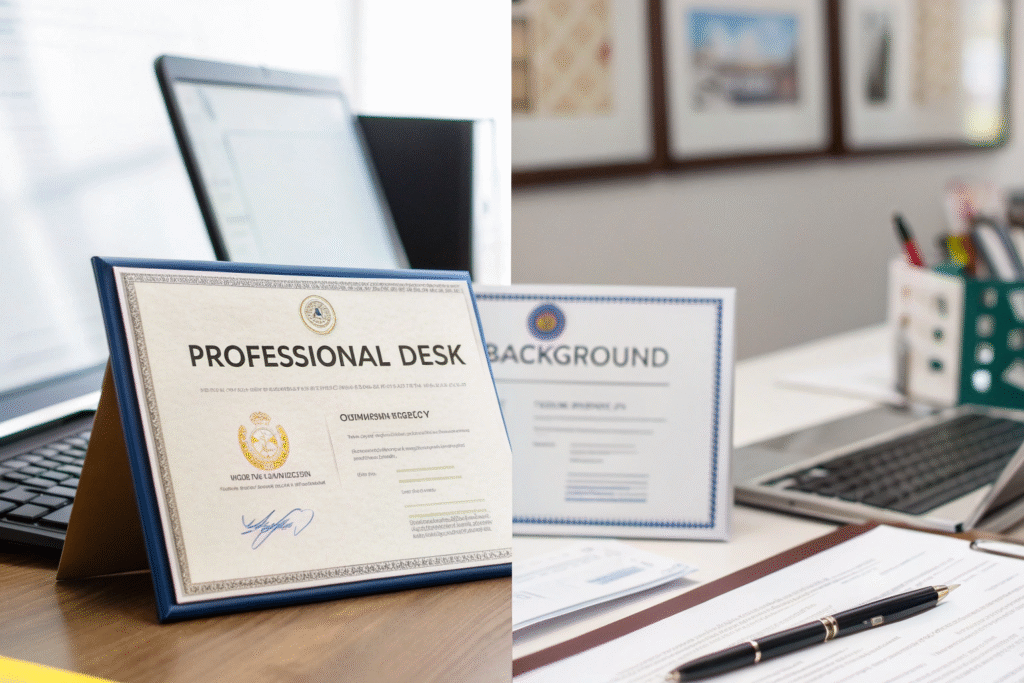
What Visual Clues Indicate a Fake Certificate?
- The logo or seal is pixelated or off-color.
- The factory name doesn’t match the one in the business license.
- No expiration date is listed.
- The issue date is years old and still marked “valid.”
- The certifying body is unknown or obscure (not SGS, Intertek, TÜV, etc.).
You can also cross-check the formatting and structure of real certificates by reviewing samples on official sites like SGS or Control Union.
What Behavior From the Supplier Should Raise Concerns?
If a factory avoids answering certification questions, sends only watermarked samples, or responds slowly when you ask for verifications — take it as a red flag.
Also, beware of sudden pricing drops tied to “new organic lines” — some trading companies falsely claim to be certified to win deals. Request their Chinese business license to match the certificate holder name with the company name.
What Role Do Third-Party Inspection Agencies Play?
For large orders or long-term partnerships, relying solely on emailed documents isn’t enough. That’s where professional third-party inspection firms can help.
They audit not only the factory’s quality — but their compliance documentation as well.
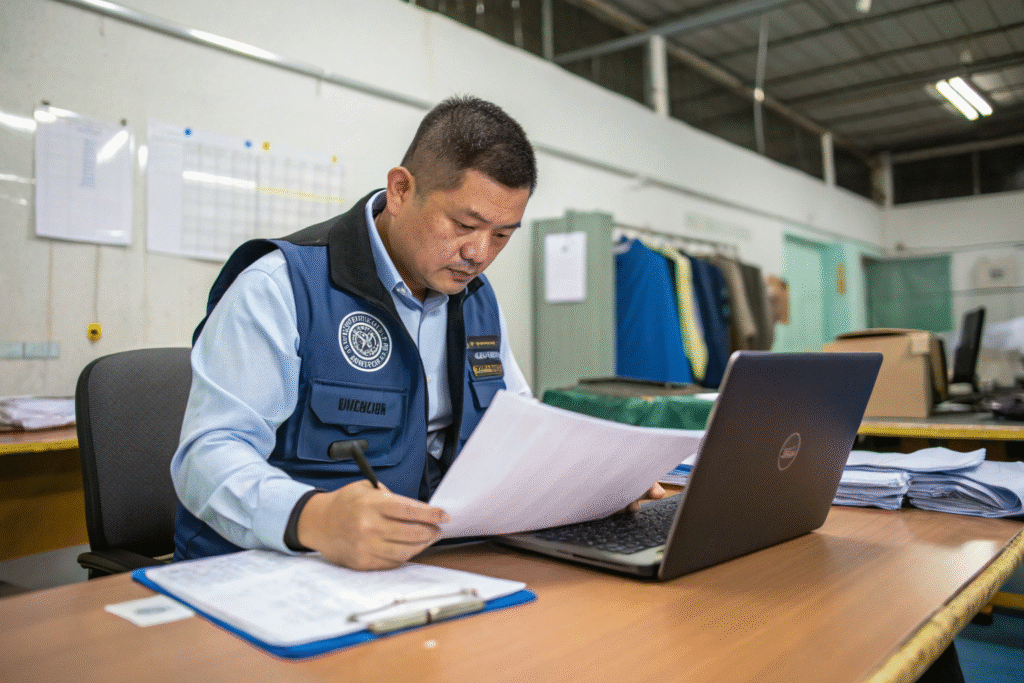
Which Agencies Are Trusted for Certification Audits?
These organizations offer document audits, lab testing, and on-site visits. If a factory says they are “WRAP certified,” for example, a third-party agency can verify its authenticity and even contact the certification body on your behalf.
How Much Do Factory Audits Cost and Are They Worth It?
A basic document and compliance check typically costs between $150–$300 USD, depending on the region. Full audits with quality checks and social compliance verification may range from $400–$800.
Considering that one failed shipment or customs hold can cost thousands, it’s a small investment for peace of mind — and for maintaining your brand’s integrity.
Conclusion
In the fashion supply chain, especially in categories like children’s clothing, factory certifications are more than nice-to-have — they are a necessity. But as more factories try to fake their way into deals, your due diligence becomes your strongest defense.
From checking databases like GOTS and OEKO-TEX, requesting business licenses, watching for red flags, and even hiring third-party audit services — you can validate every certification claim with confidence.
At Fumao Clothing, we maintain up-to-date GOTS, OEKO-TEX, BSCI, and WRAP certifications — and are happy to provide verification links, third-party audit results, and full transparency. Because we believe trust should never be assumed. It should be earned.
